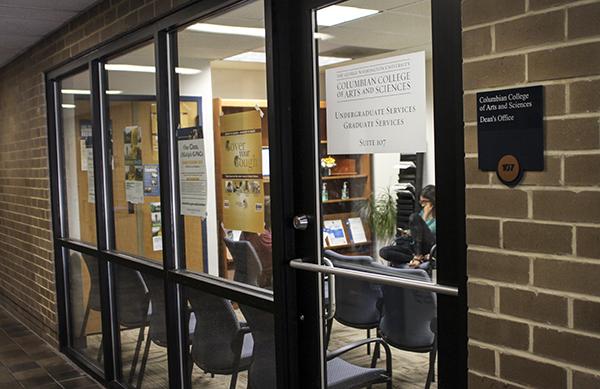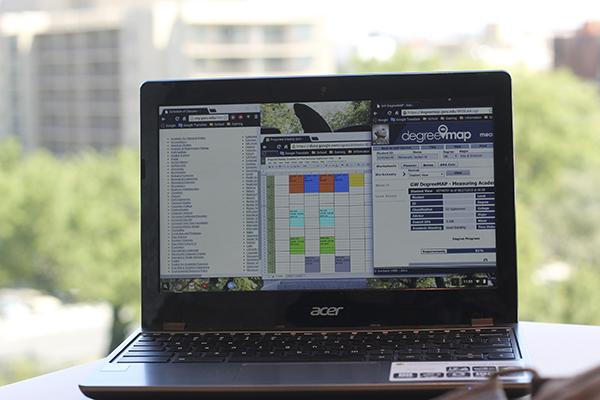
Meeting with your academic adviser during your first semester of school may feel like another box to check off in between the excitement of the semester’s classes, meetings and parties. But when you take some time to schedule and plan for meetings with your adviser, it will benefit your academic schedule, plans and peace of mind.
Here are some tips for before, during and after your first adviser meeting so you stay organized and on top of it:
Schedule an appointment early.
You were assigned a group of advisers to choose to work with during Colonial Inauguration, and while this change gives more scheduling flexibility, that doesn’t mean all five advisers will be free when you are. Once you’re in the swing of things, schedule an appointment a month or so out, when you’ll have a better sense of how you’re doing in your classes and will know of any changes you might make to your major or minor.
Come prepared.
Check your DegreeMap account to see what requirements you have filled, and which are your next priorities to fill. Take a look at the current semester’s schedule of classes — and the schedule for the next semester if it is available — for ideas of what specific classes you’re interested in or required to complete. Jot down those notes and any other topics you want to cover in your meeting for a more organized appointment.
Ask specific questions.
Even about hypotheticals: While you talk with your adviser, ask every question you think of or have written down beforehand. Your appointment is scheduled to last half an hour, which is plenty of time to squeeze in as many topics as possible. If you have inklings that you may want to study abroad for a year or that you are considering a double major, voice them now so you can keep prerequisites in mind.
Use a worksheet.
Most schools provide worksheets that lay out graduation requirements and course options. As you register for classes each semester, update the worksheet to keep track of how far you are within your major.
Plan ahead.
Starting your freshman year, it’s a good idea to plot out all the courses you would like to take during your time at GW. If you haven’t yet picked a major, make a few copies with different options. It’s always OK to change things down the line, but a plan early on will make future scheduling a little less stressful.
Stay in touch with your adviser.
Plans change, which is normal and expected for undergraduate students. When you do change your mind about your courses or major, reach out to your adviser for a meeting, or drop by walk-in office hours to hatch a new plan.







